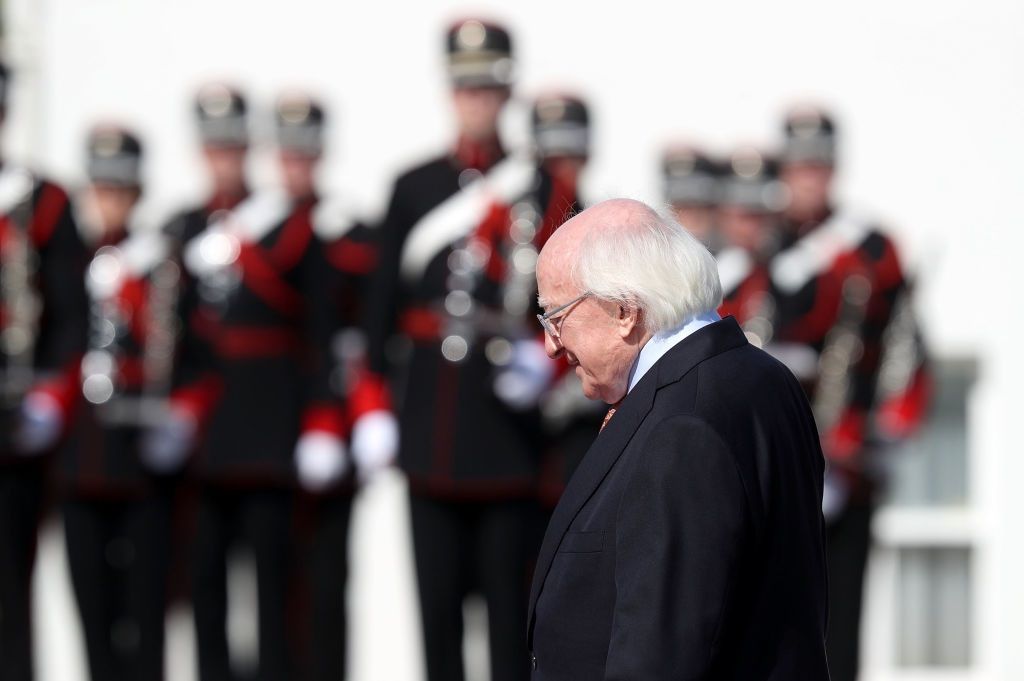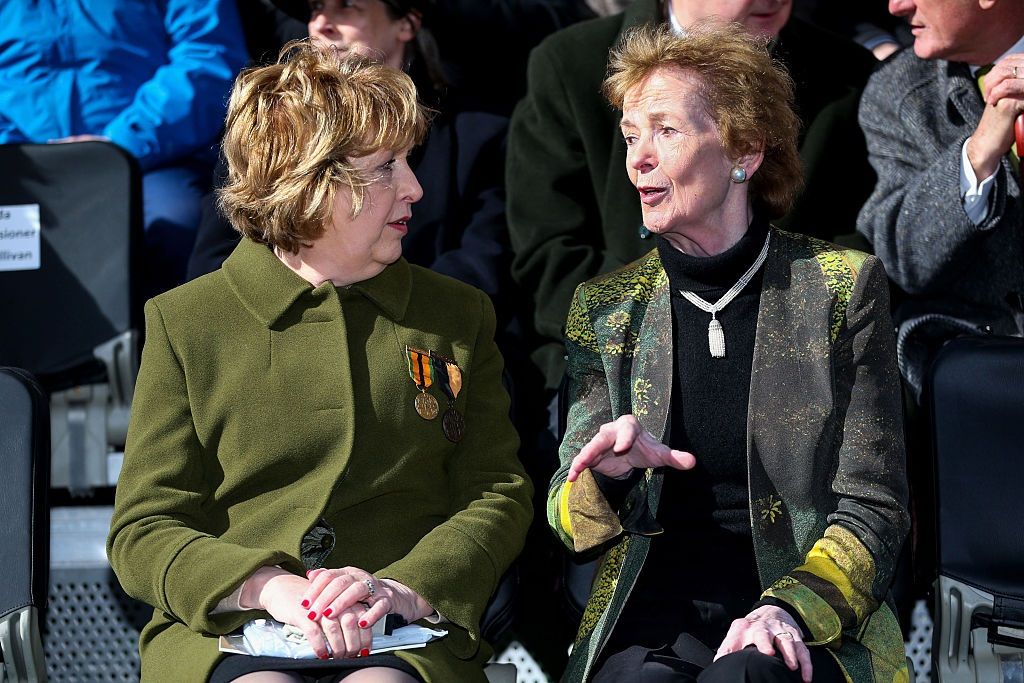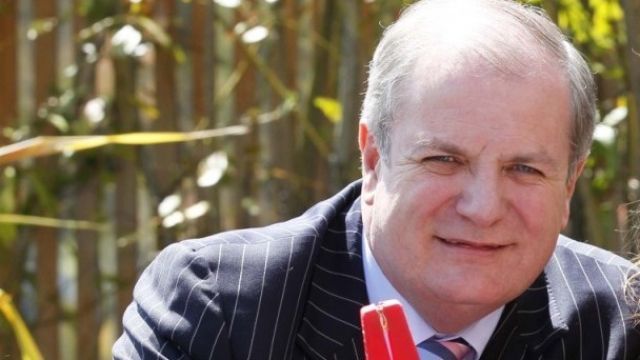

Share
8th September 2018
11:46am BST

 The President is a figurehead of the state and as such represents the state and its values. The President opens schools and makes nice speeches. The President can dissolve the Dáil, call the Council of State to test whether legislation may be unconstitutional, and welcomes dignitaries. The President can’t do pretty much anything else; not even leave the country without the government’s permission. Many if not all prospective candidates appear not to realise this and some others clearly would be better placed to occupy a spot under a bush on I’m A Celebrity Get Me Out Of Here than a place behind a desk in the Áras.
Until now, the President has also been of high intellectual calibre and those running for this largely ceremonial office would also do well to look at previous office holders who raised the bar of our discourse.
They were titans of Irish thought. Douglas Hyde championed the Irish language; Cearbhall Ó Dálaigh was one of the major legal minds of our republic, and his writing remains a significant part of our jurisprudence, well over 40 years since he left the Supreme Court for the Áras after Erskine Childers died in office. Marys Robinson and McAleese were trailblazers for women and broke open the boundaries of the office, harnessing that soft power Gavin Duffy correctly sees as existing in the office. In other words, the likelihood of mortification at sending the President abroad was always mercifully low.
The President is a figurehead of the state and as such represents the state and its values. The President opens schools and makes nice speeches. The President can dissolve the Dáil, call the Council of State to test whether legislation may be unconstitutional, and welcomes dignitaries. The President can’t do pretty much anything else; not even leave the country without the government’s permission. Many if not all prospective candidates appear not to realise this and some others clearly would be better placed to occupy a spot under a bush on I’m A Celebrity Get Me Out Of Here than a place behind a desk in the Áras.
Until now, the President has also been of high intellectual calibre and those running for this largely ceremonial office would also do well to look at previous office holders who raised the bar of our discourse.
They were titans of Irish thought. Douglas Hyde championed the Irish language; Cearbhall Ó Dálaigh was one of the major legal minds of our republic, and his writing remains a significant part of our jurisprudence, well over 40 years since he left the Supreme Court for the Áras after Erskine Childers died in office. Marys Robinson and McAleese were trailblazers for women and broke open the boundaries of the office, harnessing that soft power Gavin Duffy correctly sees as existing in the office. In other words, the likelihood of mortification at sending the President abroad was always mercifully low.
 The soft power of the presidency has indeed huge potential. Mary Robinson’s finest hour was her visible anger in Goma, Somalia, at the plight of civilians during the famine of the early 1990s.
She was the country’s – and the world’s - guilty conscience. That power of symbolism was understood by President McAleese, when she took communion in St Patrick’s Cathedral. For those aware of the shabby treatment of Douglas Hyde during his inauguration - a man who, despite being a champion of Gaelic Ireland, was Protestant - this act of reconciliation had serious resonance for the country and for the office itself.
Has President Higgins failed in that regard? No, but he is in the mould of previous Presidents, who bar Hyde were to an old man (‘cos that’s what they were) career politicians, mostly at the end of their careers. His success, apart from just being Miggeldy, is in speaking to people of my generation who feel the goalposts are being constantly shifted through rising house prices, qualification inflation and lowering living conditions; the Precariat, as he calls it, are the victims of cynical post-crash backsliding on the social contract. And he (may have) bought ice cream for primary school kids, which is nice, isn’t it?
Soft power can also achieve a lot more than getting 50 99s from Teddy’s. Since the Utøya massacre, King Harald V of Norway speaks to the inclusion of all Norwegians in society and does so from the heart. The figurehead can be a healer.
But with the number of 'businessmen' and 'entrepreneurs' running reaching the hundreds at this stage, there is a notion doing the rounds that there is a binary choice between entrepreneurialism and intellectualism. Intellectual prowess and business acumen are not mutually exclusive.
A great example for the Gavin Duffys of this world is Richard von Weizäcker, Germany’s president from 1984 to 1994. A lawyer, businessman and politician, he was a lightning rod for West Germany in a position very similar to our President. On the 40th anniversary of the end of World War II in 1985, he called on his fellow Germans to finally look the truth about the war – the war of hatred, genocide, and ruination which they started and for which they had to atone – as best they could in the eye and to learn to live with each other, not against each other. That worked out pretty well until very recently.
The soft power of the presidency has indeed huge potential. Mary Robinson’s finest hour was her visible anger in Goma, Somalia, at the plight of civilians during the famine of the early 1990s.
She was the country’s – and the world’s - guilty conscience. That power of symbolism was understood by President McAleese, when she took communion in St Patrick’s Cathedral. For those aware of the shabby treatment of Douglas Hyde during his inauguration - a man who, despite being a champion of Gaelic Ireland, was Protestant - this act of reconciliation had serious resonance for the country and for the office itself.
Has President Higgins failed in that regard? No, but he is in the mould of previous Presidents, who bar Hyde were to an old man (‘cos that’s what they were) career politicians, mostly at the end of their careers. His success, apart from just being Miggeldy, is in speaking to people of my generation who feel the goalposts are being constantly shifted through rising house prices, qualification inflation and lowering living conditions; the Precariat, as he calls it, are the victims of cynical post-crash backsliding on the social contract. And he (may have) bought ice cream for primary school kids, which is nice, isn’t it?
Soft power can also achieve a lot more than getting 50 99s from Teddy’s. Since the Utøya massacre, King Harald V of Norway speaks to the inclusion of all Norwegians in society and does so from the heart. The figurehead can be a healer.
But with the number of 'businessmen' and 'entrepreneurs' running reaching the hundreds at this stage, there is a notion doing the rounds that there is a binary choice between entrepreneurialism and intellectualism. Intellectual prowess and business acumen are not mutually exclusive.
A great example for the Gavin Duffys of this world is Richard von Weizäcker, Germany’s president from 1984 to 1994. A lawyer, businessman and politician, he was a lightning rod for West Germany in a position very similar to our President. On the 40th anniversary of the end of World War II in 1985, he called on his fellow Germans to finally look the truth about the war – the war of hatred, genocide, and ruination which they started and for which they had to atone – as best they could in the eye and to learn to live with each other, not against each other. That worked out pretty well until very recently.
 In Ireland, rubbishing the cerebral for headlines or to use the nomination process for attention seeking or to espouse pretty sometimes offensive opinions is wholly inappropriate. It damages the one office of the state where the grubby business of politics gives way to big thinking about who we are. Comments in the press that Miggeldy is too much an egghead are as stupid and tedious as the lie that business knows best.
But business people in particular need to grasp that they are not automatically better qualified for everything just because of what they do for a living. What’s more, judging by the nominations race to date, how many potential candidates are by their words and deeds in this process morally, whatever about politically or legally, fit for the Áras? The scandal is that this sideshow has given voice not only to the silly, but also to the ugly, whether it is about gender, race or the nefarious goings on of the state.
So if a dog does get on the ballot, I might just give them a vote after all.
In Ireland, rubbishing the cerebral for headlines or to use the nomination process for attention seeking or to espouse pretty sometimes offensive opinions is wholly inappropriate. It damages the one office of the state where the grubby business of politics gives way to big thinking about who we are. Comments in the press that Miggeldy is too much an egghead are as stupid and tedious as the lie that business knows best.
But business people in particular need to grasp that they are not automatically better qualified for everything just because of what they do for a living. What’s more, judging by the nominations race to date, how many potential candidates are by their words and deeds in this process morally, whatever about politically or legally, fit for the Áras? The scandal is that this sideshow has given voice not only to the silly, but also to the ugly, whether it is about gender, race or the nefarious goings on of the state.
So if a dog does get on the ballot, I might just give them a vote after all.Explore more on these topics:

Politics | Joe.ie
politics